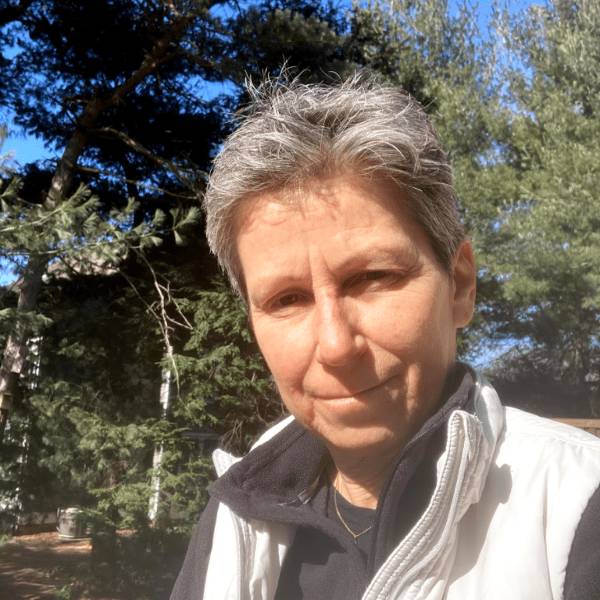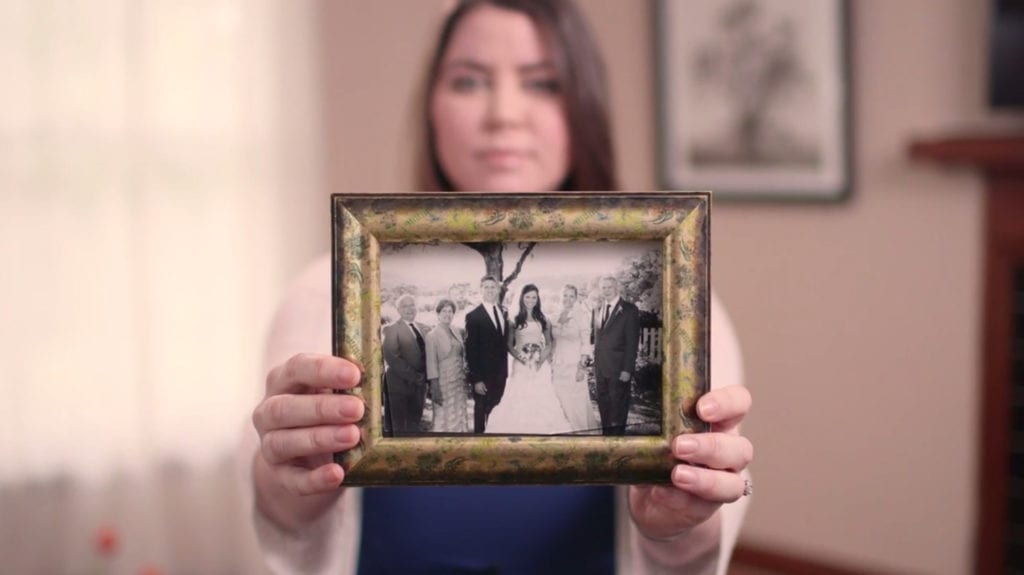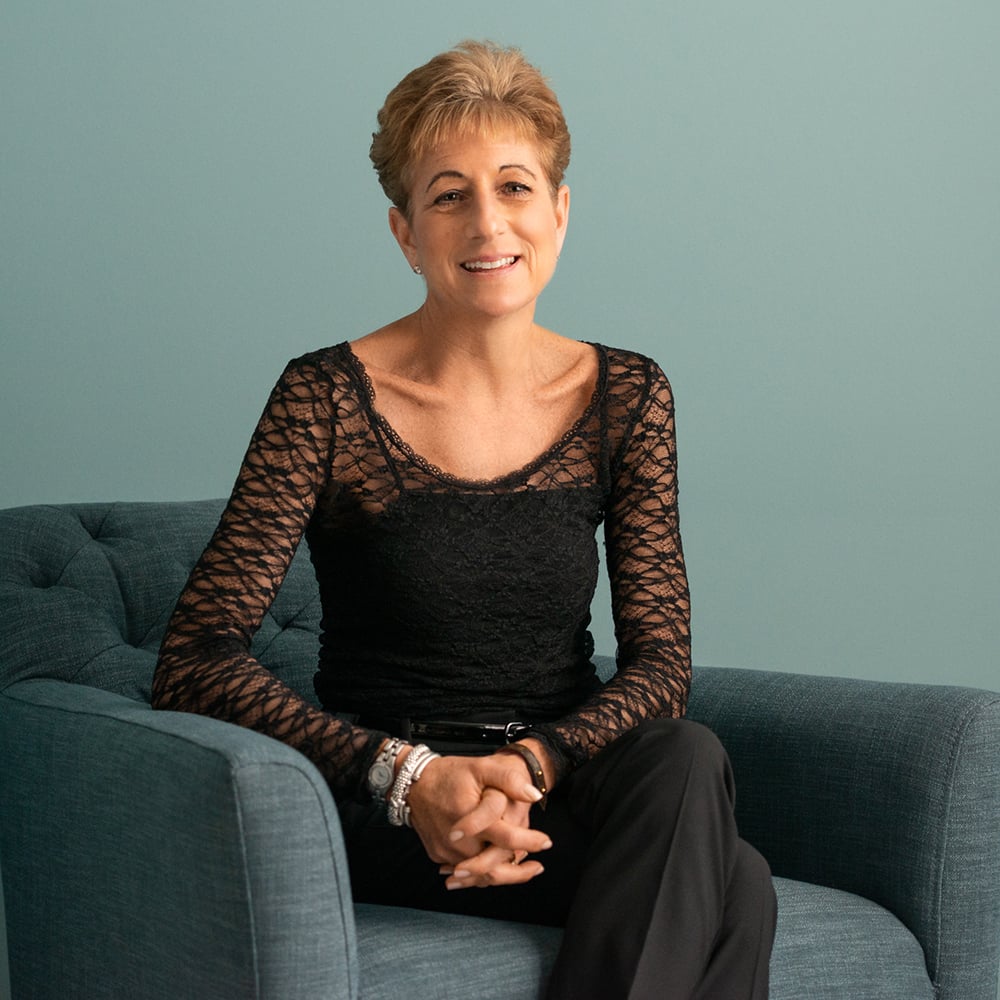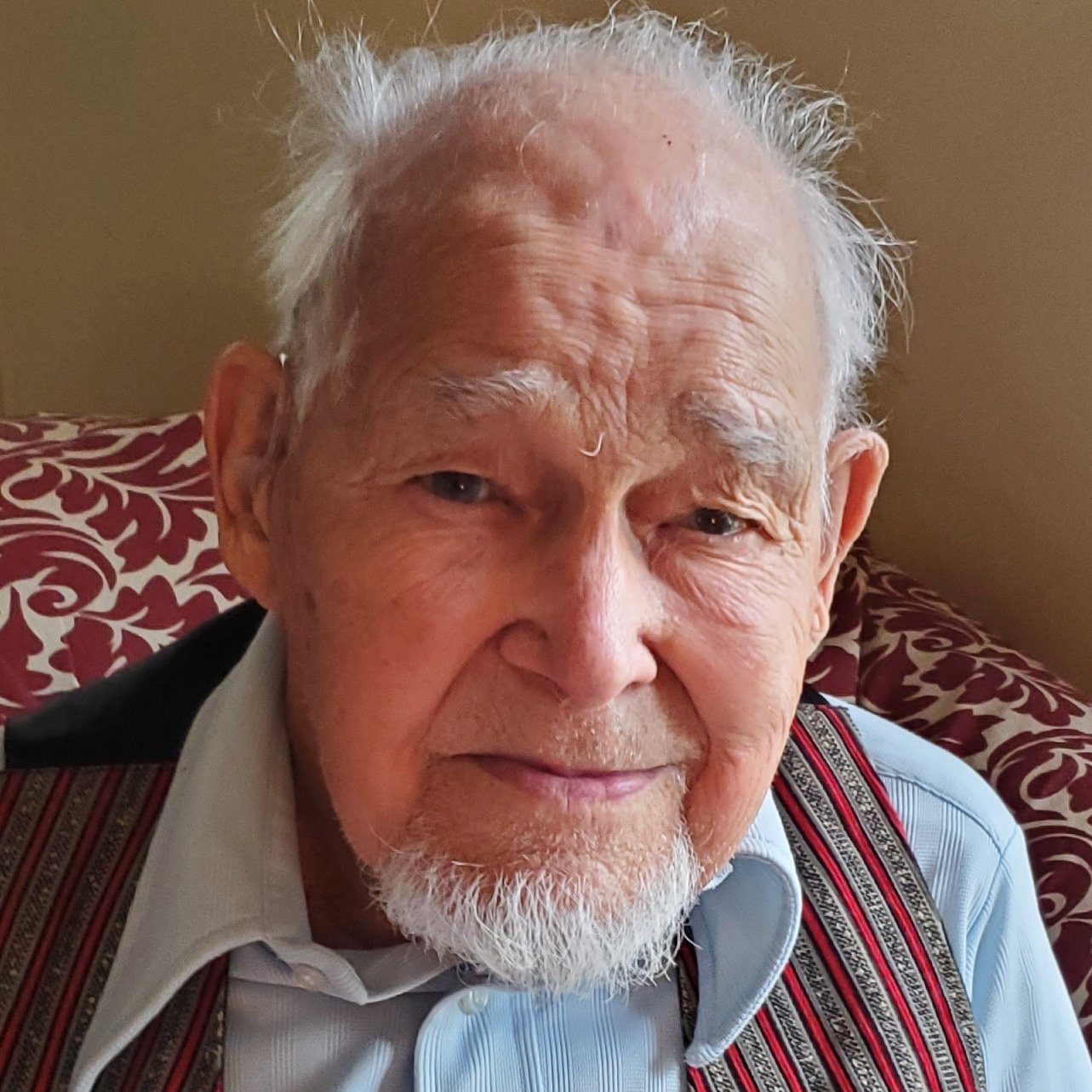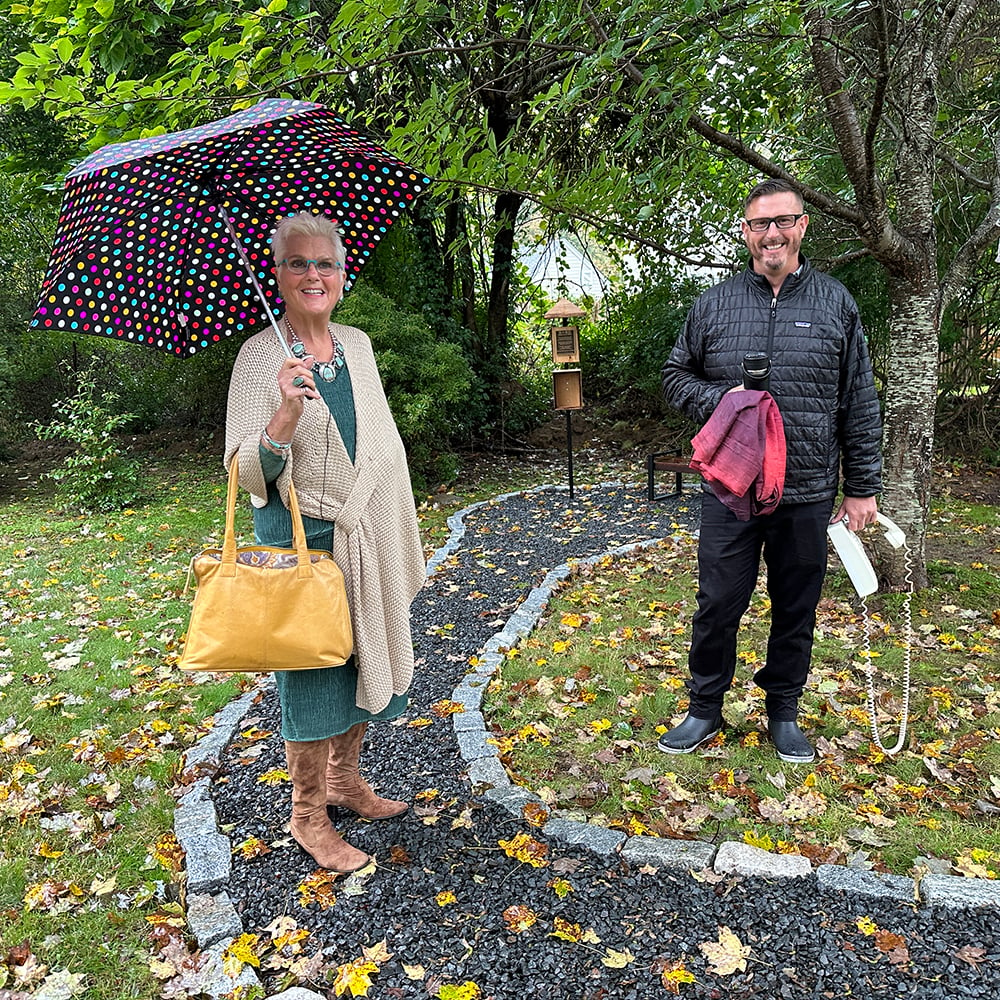Kim shared her story in March 2021.
In June of 2013, I was diagnosed with ovarian cancer. The news stunned me. I was healthy, active, and days before my diagnosis had run a 5k, 20-obstacle course race through the mud. I was an athlete. No one, including my doctor, thought I had cancer, at least nothing beyond possibly stage 1.
Because of the cancer marker detected in my blood work, I had surgery to diagnose what was going on. When I awoke from surgery, the oncologist was standing next to me and broke the news: “You have cancer and it is much more advanced than we expected. It’s stage 3c.” I asked, “But aren’t there only 4 stages?” I could feel myself tearing up and starting to shake my head in disbelief.
I have been through eight different rounds of chemotherapy over the years and just recently began a "last hope" trial after no longer responding to any standard treatment. My disease has metastasized to multiple organs and my pain, discomfort and physical limitations have escalated.
In 2019, when I first testified in support of a medical aid-in-dying bill in Connecticut, I was still active, still able to engage in life fully. I was going to work every day, committed to helping the students I served as a social worker. I was playing tennis matches and running road races. I was able to participate in life in the ways that bring me the most joy and purpose.
I’m a different person now. I have not worked since December 2019, due to my steadily declining health. Today, walking a mere half a mile takes every ounce of energy and determination that I have. I have endured long bouts of chemotherapy, and have not had a break from debilitating treatment, now, in five years.
I’ve known for years that I will never go into remission again. My disease has spread to one of my breasts, my liver, my right lung, and skin. My disease has metastasized to the point where I am always in pain or some level of discomfort. I'm always fatigued. Every day is a long, long day; and the night often offers no respite. There is no doubt that I’ve nearly run out of options and time.
However, I've not given up. I began a trial a few weeks ago with the hope that there may still be a chance to stabilize my disease. But it is, I am near certain, my absolute last hope. Fortunately, this week there are indicators that I may be responding positively to the trial drugs. I’m a little stronger right now and in less pain. I’m not in no pain, but less pain. I have a little bit more hope, but I’m also keenly aware that that can change, and that the lesions in my organs and in my body are still present.
If the trial drugs stop working, my disease will continue to progress, likely rapidly. The pain will get to a point where it is only manageable with a steady dosing of narcotics, and the fatigue will likely increase to the point that I'll no longer be able to perform even the simplest of daily living skills on my own.
I watched my mother die a brutally slow and brutally painful and debilitating death from her cancer. It was hell for her and extremely painful, for me and my father, to watch while she begged, “Please just let me die.” I held her hand and dried her tears when the morphine just couldn’t touch her pain. I held a moist cloth to her lips when she was too weak to drink. Though traumatic for me, more significantly it was traumatic for my mother.
I do not want to die that way, not only for my own sake, but for the sake of my family and friends. I would like to have the option to avoid the last days of intense suffering. I do not want to strain through each moment of the day with no hope of improvement.
Right now, when the pain is so intense that over the counter medications can’t touch it, I finally give in and say, "All right, I need a break; I can't take this anymore," I take a half a Dilaudid, the only narcotic I’ve been able to tolerate. Within a half-hour of taking a half of a Dilaudid, I become so weak that all I am able to do is lay in bed or sleep for the next eight to twelve hours. My day is over.
There will be a time when I’m no longer able to “show up” for my life. There will be a time when my body can no longer withstand the side effects of treatment. There will be a time when I won’t be able to tolerate the symptoms of my cancer. There will be a time when the only way to manage another day is through palliative medicine. I will be dosed on drugs, not to live with exuberance, but rather to die more quietly.
So if it gets to the point where I have to manage my symptoms on some narcotic like Dilaudid all the time, I will be miserable, and unable to do the things I love. And to what end? Again, there's no cure.
That’s why I have testified twice in the last two years in support of Connecticut’s aid-in-dying legislation.
One person at the most recent hearing promised she could “guarantee” that hospice could make me comfortable and give me “dignity” at the end of my life.
My response? “Being doped out on narcotics is not comfortable for me in any way, shape, or form. For other people, [that's] their choice. They have their own definition of comfort...and that's why this bill is so unique because it is up to the individual to choose. And so I want to be able to choose what's comfortable for me.”
I want the option of medical aid in dying.
Medical aid in dying would allow me the breathing room to live. It would be a weight off of me so that I don’t have to expend so much energy in the constant fear around what my last days will feel like. My destiny should be in my hands.
READ MORE:
The Day Op-Ed/Guest Opinions - ‘I want the option of medical aid in dying’
The Washington Post - Opinion: Medical aid in dying should not be proscribed by society’s laws or condemned by its mores


